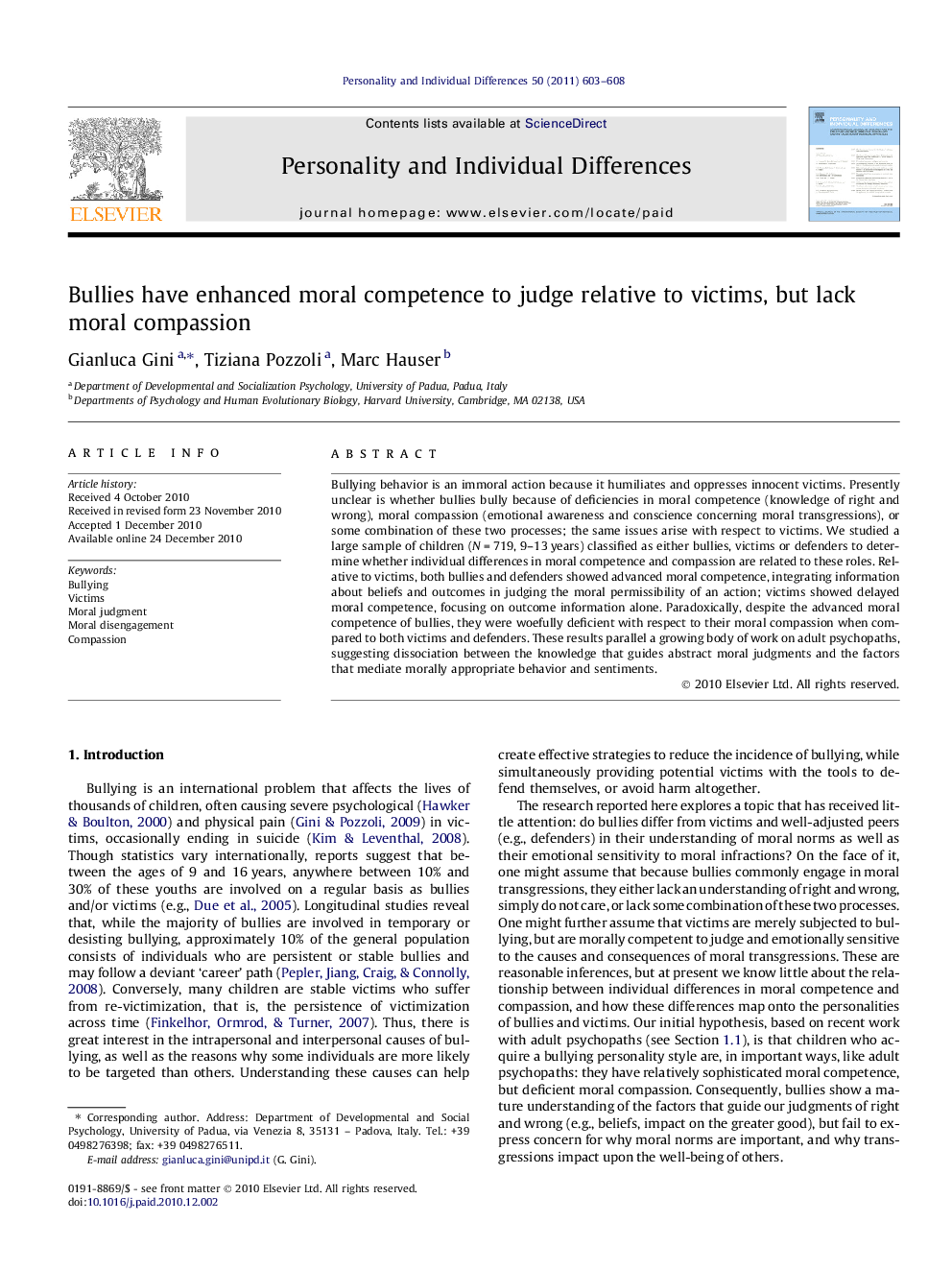| Article ID | Journal | Published Year | Pages | File Type |
|---|---|---|---|---|
| 891645 | Personality and Individual Differences | 2011 | 6 Pages |
Bullying behavior is an immoral action because it humiliates and oppresses innocent victims. Presently unclear is whether bullies bully because of deficiencies in moral competence (knowledge of right and wrong), moral compassion (emotional awareness and conscience concerning moral transgressions), or some combination of these two processes; the same issues arise with respect to victims. We studied a large sample of children (N = 719, 9–13 years) classified as either bullies, victims or defenders to determine whether individual differences in moral competence and compassion are related to these roles. Relative to victims, both bullies and defenders showed advanced moral competence, integrating information about beliefs and outcomes in judging the moral permissibility of an action; victims showed delayed moral competence, focusing on outcome information alone. Paradoxically, despite the advanced moral competence of bullies, they were woefully deficient with respect to their moral compassion when compared to both victims and defenders. These results parallel a growing body of work on adult psychopaths, suggesting dissociation between the knowledge that guides abstract moral judgments and the factors that mediate morally appropriate behavior and sentiments.
